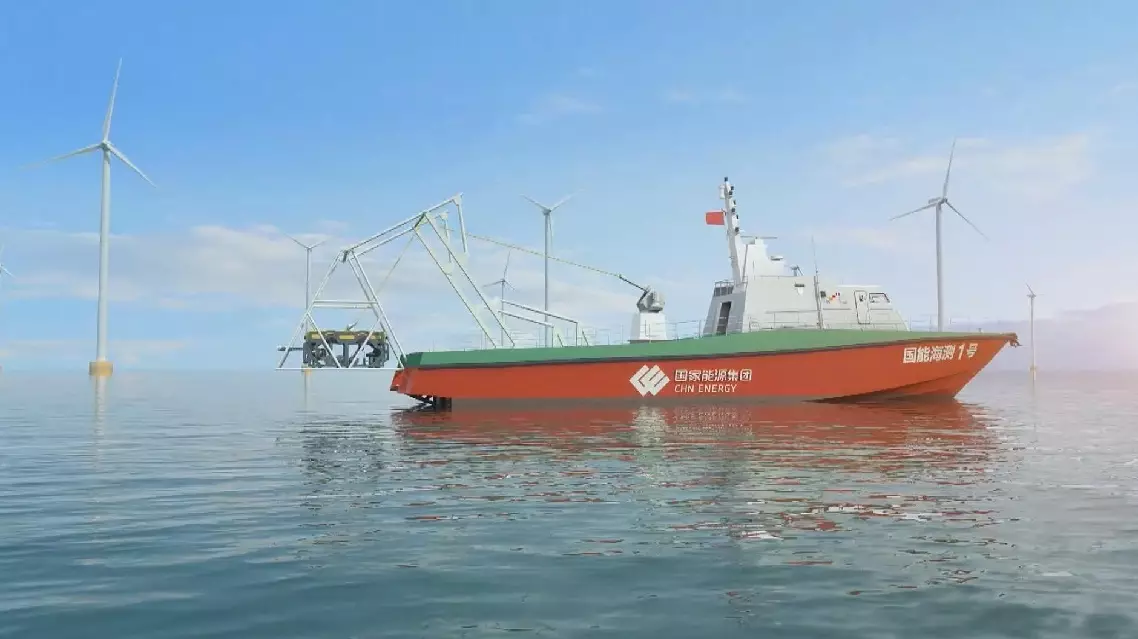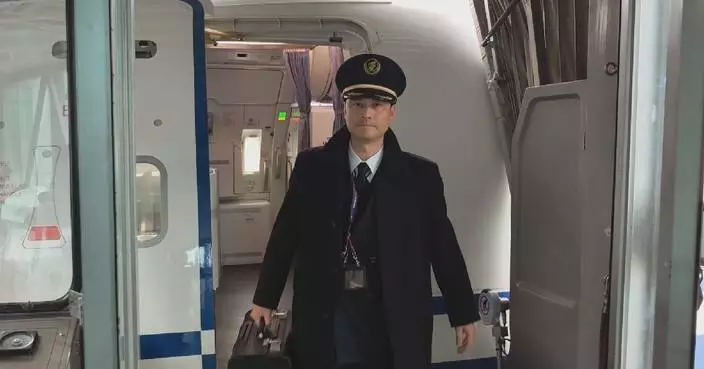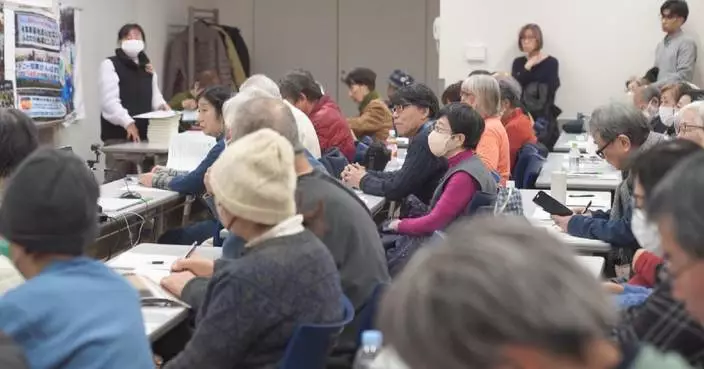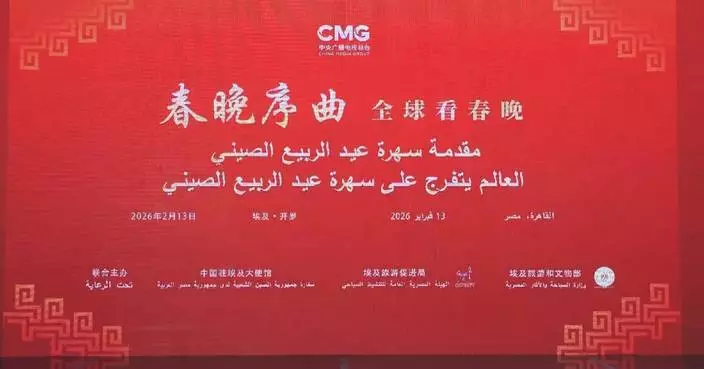China's first autonomous offshore wind farm inspection platform was officially put into operation at the Rudong offshore wind power project in Jiangsu on Saturday, marking a breakthrough in the country's offshore wind power equipment operation and maintenance.
The platform, consisting of an unmanned vessel and a robot, can carry out remotely-controlled unmanned submarine cable inspections, extending the daily inspection range from the previous 10 kilometers to 100 kilometers, reducing the fault localization time by 90 percent.
It can also raise the detection accuracy by 10 times compared with the traditional method, which relies on manned vessels to tow passive detectors and requires a crew of at least nine people.
During operations, the unmanned vessel navigates to designated areas based on pre-programmed routes, autonomously deploying the robot for fault detection. By collecting submarine cable signals, the robot generates a detailed cable map and guides the unmanned vessel. This method allows the detector to get closer to the cable, significantly improving the detection accuracy.
The platform is developed by China Longyuan Power Group, a subsidiary of the China Energy Investment Group.
The intertidal offshore wind farm, located off the coast of Rudong County in Jiangsu, is the first wind farm that requires offshore wind turbines to be installed at areas of at least 10 kilometers offshore and in water depth of at least 10 meters.
This new breakthrough will provide strong support for China to build deep-sea and far-sea offshore wind farms in the future.

China's first autonomous offshore wind power inspection platform begins operation
The Xinghuafu historical and cultural zone, the core area of Putian in Fujian Province, is attracting huge turnouts of travelers during the Spring Festival holiday season with cultural immersion activities.
The Spring Festival, also known as the Chinese New Year, falls on February 17 this year. In celebration of the grand festival, Xinghuafu, with its freshly renovated buildings adorned with traditional oil-paper lanterns and holiday decorations, has staged a variety of evening performances for visitors since February 4. Holiday travelers here can also enjoy an interactive experience with performers dressed up as ancient characters across the cultural zone -- a cultural immersion activity Xinghuafu has introduced this year to enrich the traveling experience. Visitors can play games with performers and win ancient style paper bills which can be redeemed for discounts at local shops.
The cultural zone has seen the daily number of visitors exceed 60,000 since February 10, doubling compared to the same period of last year. With its restored ancient mansions and alleyways becoming popular backdrops for hanfu (traditional Chinese clothing) photography enthusiasts, traveling photography is also expanding in Xinghuafu, boosting the overall economy of the area.
"This is my first time coming to this ancient street to take photos. The scenery here is really photogenic. It was such a pleasant surprise," said a tourist dressed in hanfu.
What began with two or three photo studios has now grown to over a dozen, with social media fame driving demand. The trend has subsequently boosted cultural creative products and food and beverage sales in the cultural zone.
Tourists are also drawn to Xinghuafu's authentic Putian cuisine such as lor mee and flat wontons. Some stores are treating visitors with special activities for the holiday.
A highlight this year is the hands-on red rice cake making experience. The red rice cake, a glutinous rice delicacy, typically stuffed with sweet fillings, is a key festive treat for the Spring Festival in Putian. Shops are also rolling out to-go packages for visitors to bring Putian's flavors back home. Food parcels shipping out from Xinghuafu has doubled during the holiday season, according to express delivery workers.

Historical zone in Fujian welcomes holiday tourists with night economy, cultural immersion










